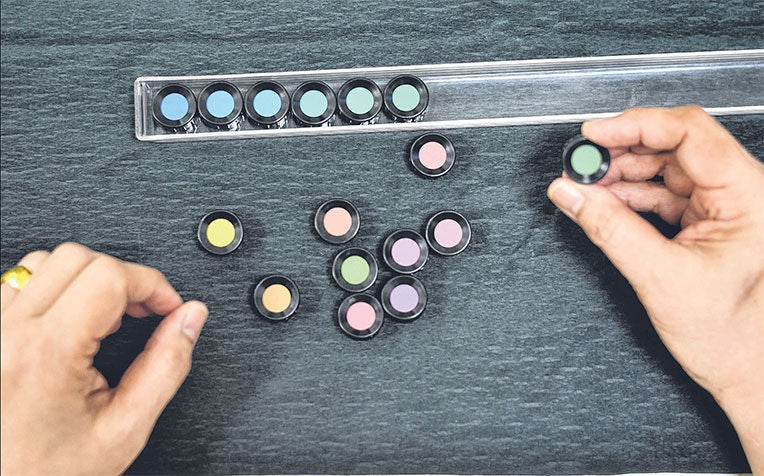
as part of regular diabetes screening.
Original title: Diabetic colour blindness risk higher
The longer a person has diabetes, the higher chance they have of developing partial colour blindness, a local study has found.
One in five diabetics without diabetic retinopathy – an eye disease that can result in vision loss – sees blue colours in a greener shade and finds it difficult to differentiate yellow and red from pink, making it hard to find jobs requiring good eyesight.
In comparison, impaired colour vision affects only an estimated 8 per cent of men and less than 1 per cent of women worldwide.
The finding stems from a study of 849 patients of different ethnicities. They were aged 21 to 80 and all of them had Type 2 diabetes.
Carried out by SingHealth Polyclinics and Singapore Polytechnic from 2013 to 2015, the study also found that older people with a lower education level are more likely to have colour vision problems.
Patients also tend to develop such issues six years after the onset of the disease. The risk of developing impaired colour vision increases by 7 per cent for each additional year the patient has Type 2 diabetes, the study found.
Yet there is no standard colour blindness test as part of regular diabetes screening, said Dr Tan Ngiap Chuan, SingHealth Polyclinics’ director of research and the study’s lead researcher. “We already know from other studies that they may be a bit more withdrawn from social life... For chefs, cooking might be a bit difficult because you really need to pick fresh ingredients (based on colour) and it might affect the presentation of the food.” he added.
People with impaired colour vision may not be able to see certain colours or may find it difficult to tell different shades apart. The prevalence of Type 2 diabetes here is expected to rise from 11.3 per cent in 2010 to 15 per cent in 2050.
There is currently no treatment for diabetics with impaired colour vision. Dr Tan advised: “First, don’t develop diabetes; if you’ve already developed it, get it well controlled so that you will not end up with colour vision defects and other more serious eye complications.”
Contributed by
Get the Health Buddy App
© 2025 SingHealth Group. All Rights Reserved.














 Get it on Google Play
Get it on Google Play